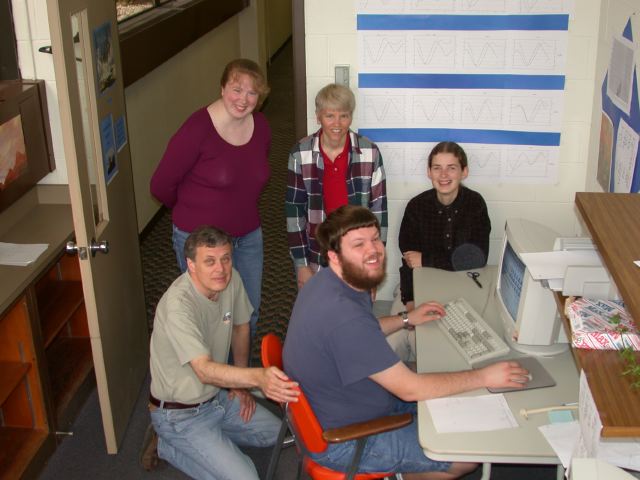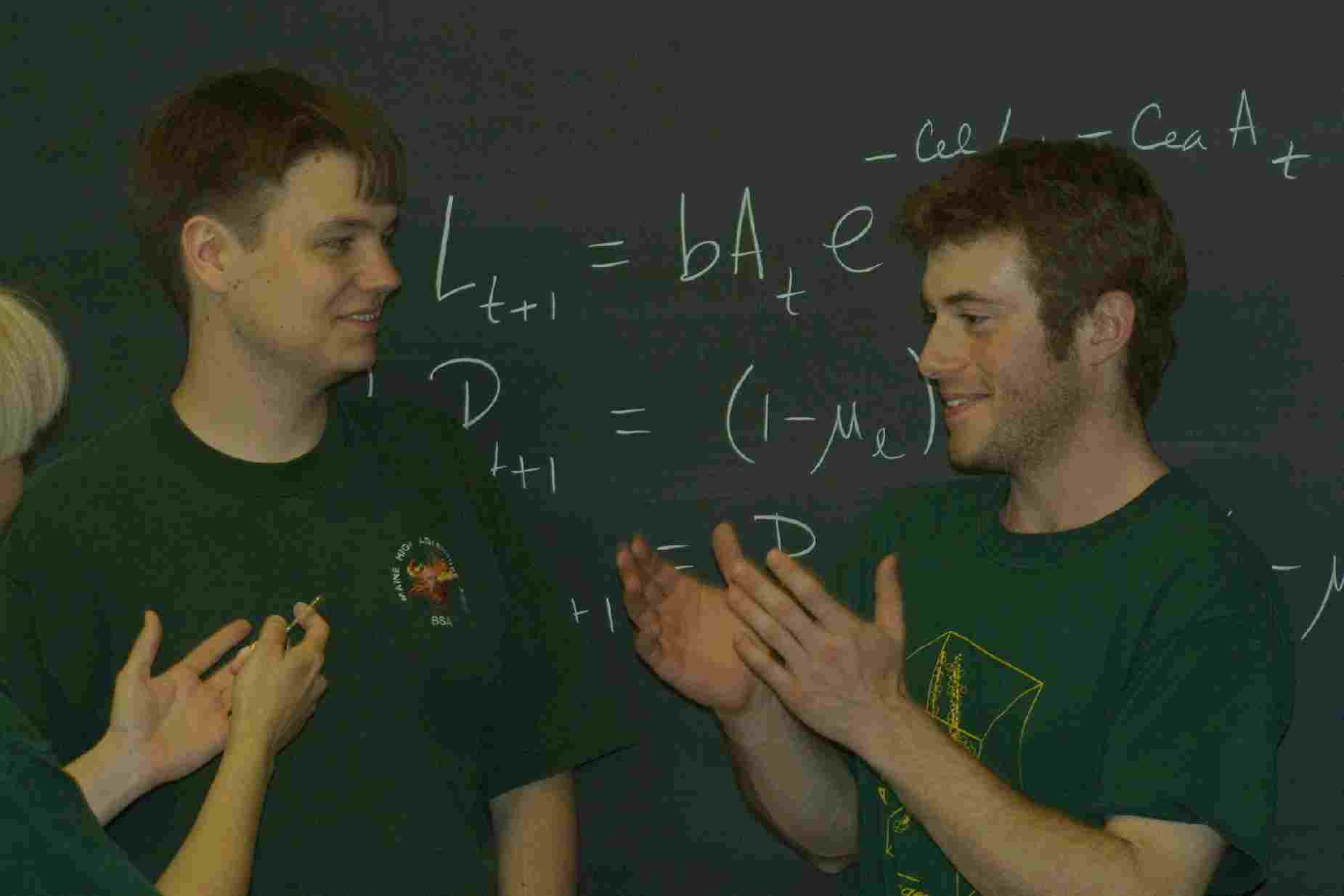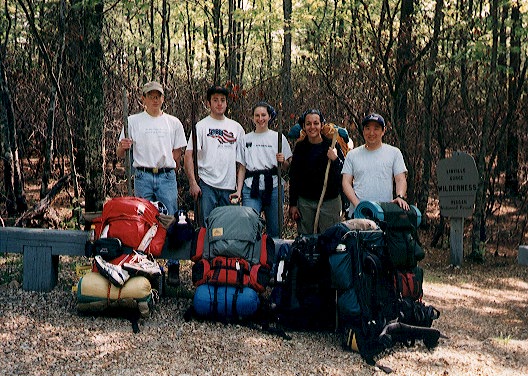


What does population ecology have to do with mathematics? Animal and plant population sizes often fluctuate dramatically over time. Understanding these fluctuations is the key to solving many important problems in ecology ranging from food production to the conservation of species diversity. Calculus (the study of rates of change) opens the way to predicting population fluctuations.
What kind of research would I do if I were on the Team? The members of our undergraduate research team are engaged in a variety of investigations that span the
spectrum from mathematics to biology. For example,
there are opportunities to collect data in
the field, look for dynamic patterns in the data, build mathematical models, write computer programs to
simulate the models, carry out mathematical model analyses and prove theorems, and carry out statistical analyses. Students dig through the professional literature,
give research talks, and coauthor research papers. They work as an interdisciplinary team, and get the chance to collaborate closely with well-known scientists. Their office is in the Science Complex, HYH 130.

Would I fit into the team? Our undergraduate team members have a variety of complementary strengths in areas such as biology, mathematics,
physics, chemistry, and computing. You do not need to be strong in all of these areas, because we work as an interdisciplinary team.
The main things we look for are self motivation, a sharp mind, good calculus skills, and an intellectual passion to understand. We give preference to
students who plan to go on to graduate school, especially those who are considering a research career in biology or mathematics. We encourage
applications from minorities.

What about financial support? Most Team members receive support through grants. See the link for "Grants and Support".
What specific subjects in mathematical ecology would I study? You would be part of the Seabird Ecology Team at Andrews university, or you would work with the Beetle Team. These two teams are interdisciplinary groups of researchers from several universities. The Seabirds study dynamics of the distribution and behavior of marine birds and mammals. The Beetles study nonlinear dynamics (bifurcations and chaos, for example) in laboratory populations of insects.
I'm interested. Whom should I contact? Please contact Professor Henson.
![]()